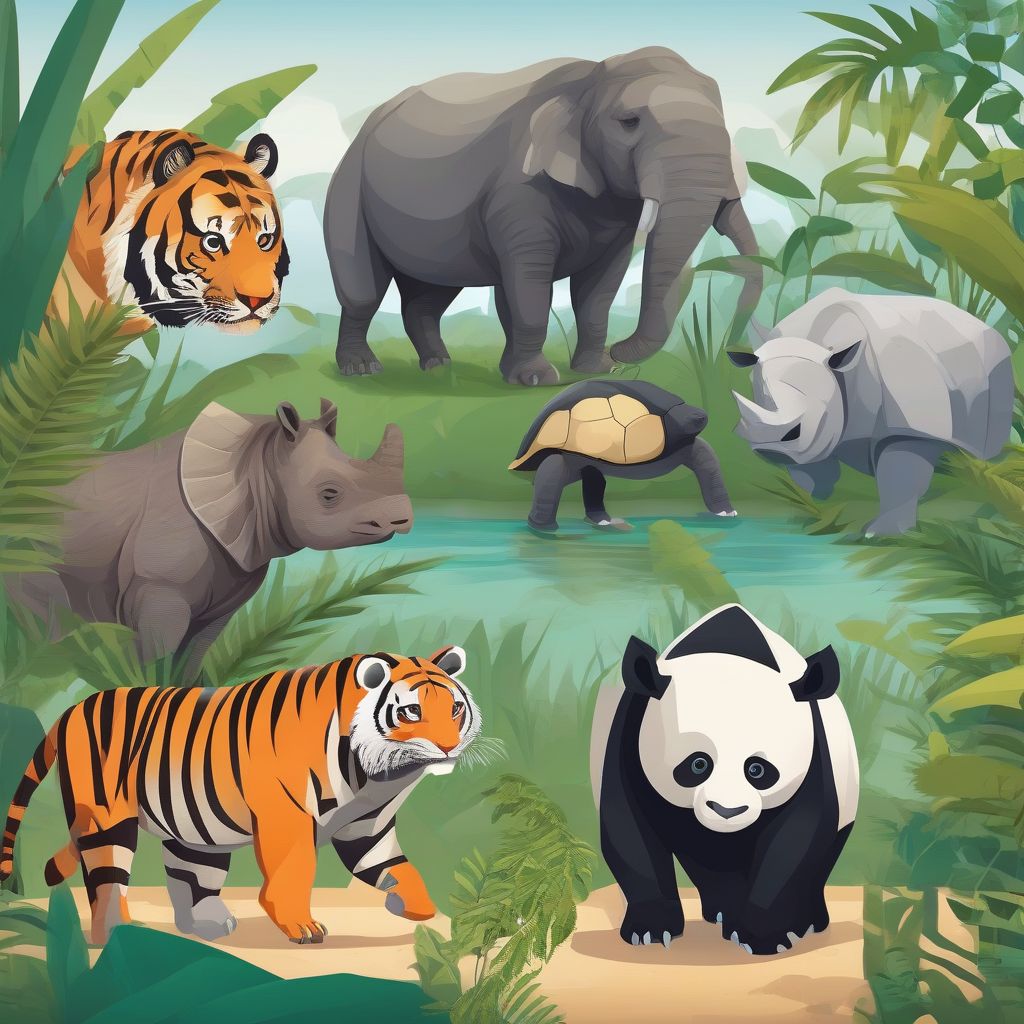Imagine a world without the majestic roar of a tiger, the playful chatter of chimpanzees, or the vibrant colors of coral reefs. It’s a bleak picture, but one that becomes increasingly likely with every species we lose. The importance of protecting endangered species extends far beyond simply preserving individual animals; it’s about safeguarding the intricate web of life that sustains us all.
Why Should We Care About Endangered Species?
Protecting endangered species isn’t just about sentimentality; it’s about our own survival. These animals play crucial roles in maintaining the balance of ecosystems that provide us with clean air, fresh water, and fertile soil. They are vital for pollination, seed dispersal, and nutrient cycling, processes that underpin our food security and overall well-being.
The Ripple Effect of Extinction
When a species disappears, it creates a ripple effect throughout its ecosystem. Predators lose their prey, prey animals overpopulate, and the delicate balance of the food web is disrupted. This can lead to cascading effects, impacting plant life, water quality, and even climate regulation. For example, the decline of pollinators like bees threatens the production of many fruits and vegetables we rely on.
Biodiversity: The Cornerstone of a Healthy Planet
Biodiversity, the variety of life on Earth, is essential for the health of our planet. Endangered species are often indicators of broader environmental problems, such as habitat loss, pollution, and climate change. By protecting these species, we address the root causes of these issues and contribute to a healthier planet for all. As renowned conservationist Jane Goodall once said, “Only if we understand, will we care. Only if we care, will we help. Only if we help shall all be saved.”
 Protecting Endangered Species
Protecting Endangered Species
Economic Benefits of Conservation
Protecting endangered species also has significant economic benefits. Ecotourism, centered around observing wildlife in their natural habitats, generates revenue and creates jobs in local communities. Furthermore, many species hold potential for undiscovered medicines and other valuable resources.
What Are the Main Threats to Endangered Species?
Understanding the threats to endangered species is crucial for effective conservation efforts. The primary drivers of extinction are:
Habitat Loss and Degradation
The destruction and fragmentation of natural habitats due to deforestation, agriculture, and urban development is the biggest threat to many species. As their homes disappear, animals are forced into smaller, isolated populations, making them more vulnerable to disease and genetic bottlenecks.
Climate Change
Rising temperatures, changing weather patterns, and sea-level rise are increasingly impacting wildlife. Many species are unable to adapt quickly enough to these changes, leading to population declines and range shifts.
Poaching and Illegal Wildlife Trade
The illegal hunting and trafficking of animals for their body parts, such as ivory, horns, and skins, is a major threat to many iconic species. This cruel and unsustainable practice decimates populations and undermines conservation efforts.
Pollution
Pollution from pesticides, plastics, and other toxins contaminates ecosystems and harms wildlife. Marine animals are particularly vulnerable to plastic pollution, which entangles them, blocks their digestive systems, and introduces harmful chemicals into their bodies.
What Can We Do to Help?
We all have a role to play in protecting endangered species. Here are some actions we can take:
Support Conservation Organizations
Donate to or volunteer with organizations working to protect endangered species and their habitats. These organizations conduct vital research, implement conservation programs, and advocate for stronger environmental policies.
Make Sustainable Choices
Reduce your impact on the environment by making sustainable choices in your daily life. Choose eco-friendly products, reduce your carbon footprint, and avoid purchasing products derived from endangered species.
Educate Yourself and Others
Learn more about endangered species and the threats they face. Share your knowledge with friends, family, and your community to raise awareness and inspire action.
Advocate for Change
Contact your elected officials and urge them to support policies that protect wildlife and their habitats. Support legislation that addresses climate change, reduces pollution, and combats illegal wildlife trade.
Conclusion
The importance of protecting endangered species cannot be overstated. It’s about preserving the intricate web of life that sustains us all, ensuring a healthy planet for future generations. From the smallest insect to the largest whale, every species plays a vital role in the ecosystem. By taking action, supporting conservation efforts, and making conscious choices, we can all contribute to a future where wildlife thrives. Let’s work together to protect the incredible biodiversity of our planet and ensure that the wonders of the natural world are not lost forever. What actions will you take today to make a difference? Share your thoughts and ideas in the comments below.



